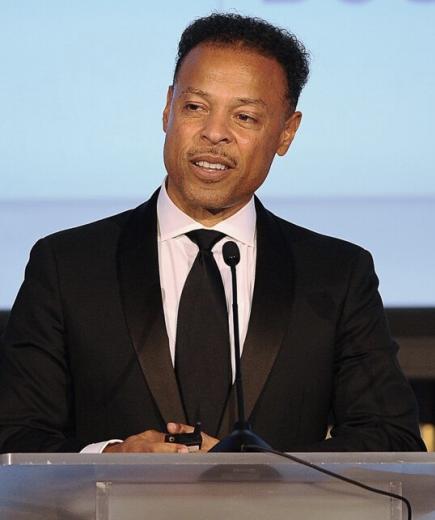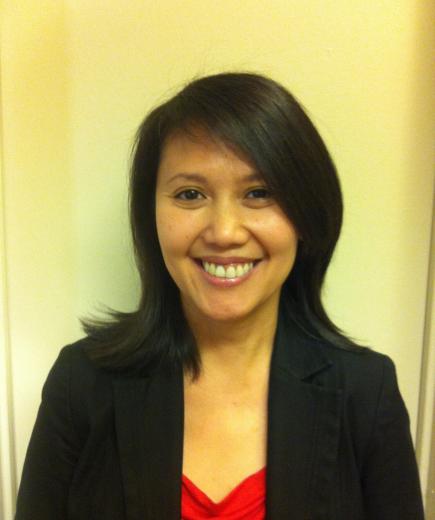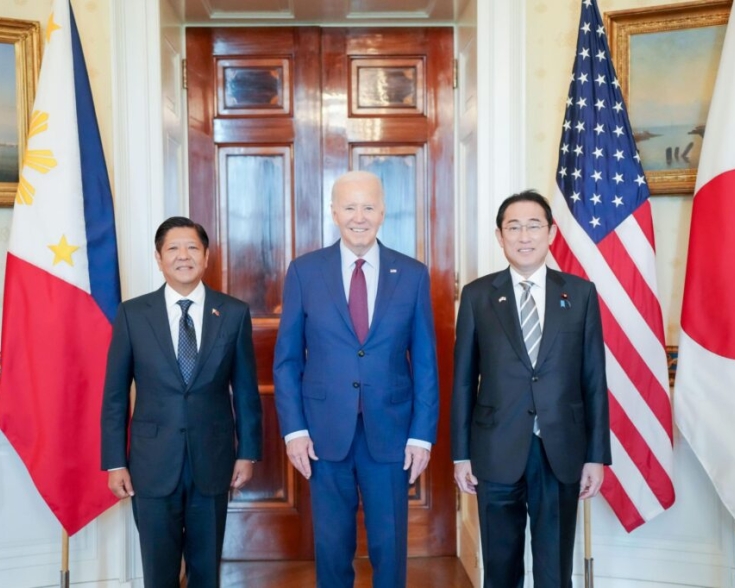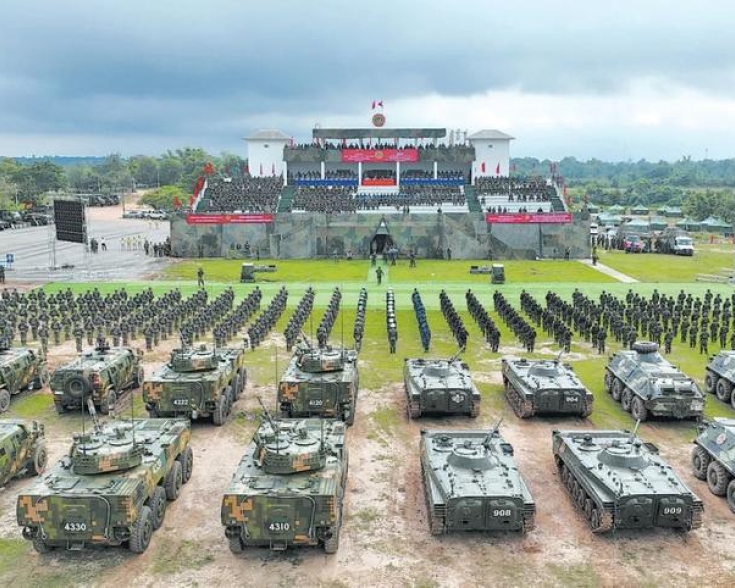Indo-Pacific Economic Framework for Prosperity Ministerial in Singapore
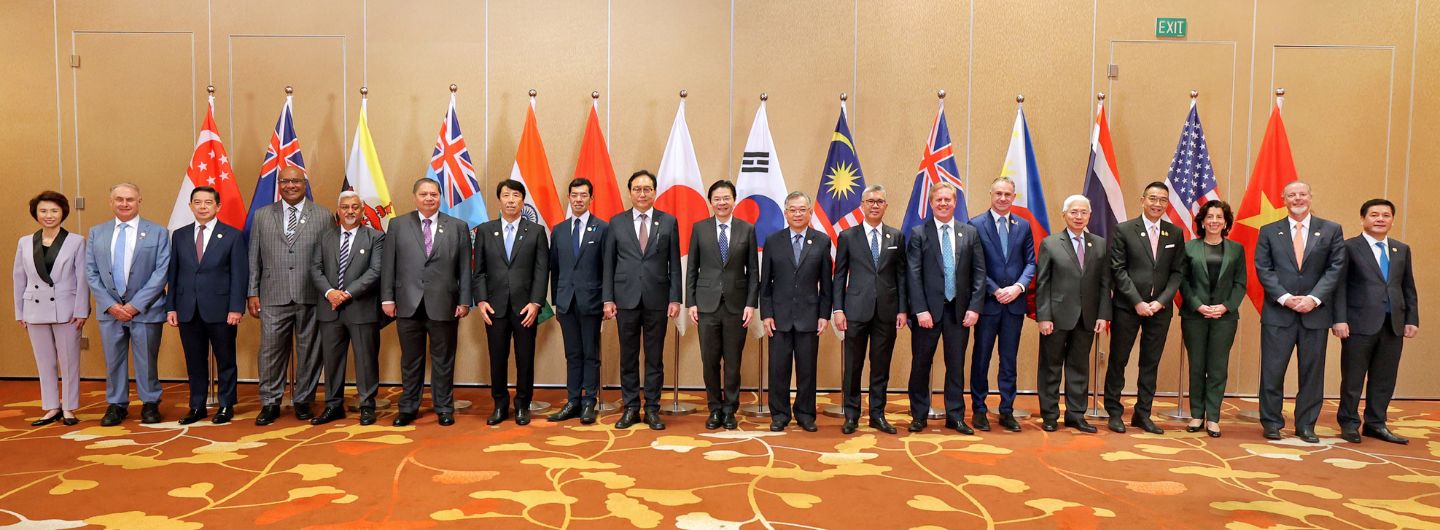
Recent Outcomes of IPEF Ministerial in Singapore on June 6, 2024
On June 6, IPEF members joined U.S. Secretary of Commerce Gina Raimondo held the first in person IPEF Ministerial meeting outside of the United States and inaugural IPEF Clean Economy Investor Forum in Singapore. At the Ministerial meeting, officials formally signed the IPEF Clean Economy Agreement (Pillar 3), the Fair Economy Agreement (Pillar 4), and the overarching Agreement on IPEF. The next Ministerial Meeting is planned to be held virtually in September. The three bodies - Supply Chain Council, Crisis Response Network, and Labor Rights Advisory Board – plan to hold an inaugural virtual meeting in July 2024. In-person meetings for The Supply Chain Council and Crisis Response Network will also be held in the United States before the end of 2024.
Pillar 2 - Supply Chain Agreement
Under the Supply Chain Agreement which entered into force in February 2024, IPEF partner countries established three bodies - Supply Chain Council, the Crisis Response Network, and the Labor Rights Advisory Board - to promote supply chain resiliency, labor rights and workforce development across the region. For the next phase, members are working to identify Chair candidates for these three bodies, negotiating terms of references and operating manuals, and developing a list of critical sectors.
Additionally, the IPEF Upskilling Initiative in partnership with the Asia Foundation has successfully delivered 10.9 million education and training opportunities in digital tools, which surpassed its goal of 7 million by 2032. By providing opportunities in digital literacy development especially for women and girls across IPEF emerging and middle-income partners, the IPEF Upskilling initiative aims to build equitable and inclusive digital economies in IPEF members nations. American companies supporting this Initiative such as Google, Amazon, and HP Inc. shared their commitment to empowering underrepresented communities in the digital world.
Pillar 3 - Clean Economy
Under the Clean Economy Agreement, members continued detailing roadmaps for the cooperative work program (CWP) that address climate solutions in furtherance of the Clean Economy Agreement’s goals. In addition to the CWP on hydrogen supply chains which started in May 2023, members have presented three new CWPs on: Missions intensity accounting, E-waste urban mining, and Small Modular nuclear Reactors (SMRs).
IPEF Clean Economy Investor Forum
On the sidelines of the Singapore Ministerial meeting, the inaugural IPEF Clean Economy Investor Forum was held by Secretary Raimondo alongside 22 American companies and partner countries. At the forum, $23 billion in Priority Infrastructure Projects with $6 billion investment-ready and the remaining as pipeline projects for ongoing efforts were announced. The Investor Forum aimed to catalyze investments in climate technology projects and sustainable infrastructure through concessional financing, technical assistance, and capacity-building. After careful selection, HolonIQ announced the Indo-Pacific Climate Tech 100, where the top 100 climate technology companies across the member countries were able to pitch to investors. Raimondo shared that the matchmaking session at the Investor Forum will potentially lead to multimillion-dollar investment in countries such as Malaysia and Thailand.
Under the Clean Economy Agreement, the IPEF Catalytic Capital Fund was launched to expand the pipeline of bankable clean economy infrastructure projects in IPEF emerging and middle-income countries. Australia, Japan, Korea, and the United States pooled in an initial grant of $33 million with the intent of generating up to $3.3 billion in private investment. Another investment initiative was led by private equity firms KKR and Global Infrastructure Partners for $25 billion in infrastructure in the region. The Investor Forum is indicative of the strong involvement of the private sector, and further emphasizes the key role that they have to play in spearheading the mobilization of concrete commercial benefits from the IPEF.
The Ministerial Meeting and the Investor Forum helped address two of IPEF’s critical issues: Mobilizing private capital and identifying “bankable” projects. The latter challenge is often due to the lack of projects being structured in ways that fulfill the commercial feasibility and risk tolerance requirements of private investors. Multilateral and independent development finance institutions such as U.S. International Development Finance Corporation, International Finance Corporation, and Asian Development Bank (ADB) often have greater flexibility in financing projects, but don’t have the same levels of resources as private investors. By providing a platform to match investors with selected projects, the meetings have opened concrete investment and financing opportunities in the Indo-Pacific.
Pillar 4 - Fair Economy
Regarding the Fair Economy Agreement, IPEF members welcomed the release of the technical assistance and capacity building (TACB) programs through the Catalogue of TACB Initiatives. These programs provide resources to members to enhance their anti-corruption efforts including fighting financial crimes (money laundering, terrorism financing, bribery) and promoting tax transparency and information sharing. As companies voice their concerns on corruption and the lack of regulatory transparency when conducting business with IPEF developing economies, strengthening the Fair Economy Pillar is integral to ensuring investor’s confidence in the region.
India’s participation at the IPEF Ministerial Meeting
India was present during the IPEF Ministerial Meeting in Singapore, and while members have signed the three agreements (IPEF Clean Economy Agreement, the IPEF Fair Economy Agreement, and the overarching Agreement on IPEF), India did not formally sign those agreements as it is undergoing domestic approval process, which is expected to be completed after the formation of the new government. India currently holds an observer status in Pillar I, while they have joined Pillar II to IV. Although India has yet to sign certain agreements of IPEF, their commitment to the regional cooperation is steadfast. At the meeting under the Fair Economy Agreement, India presented a training program in Digital Forensics & System-Driven Risk Analysis that will be offered to IPEF members. Under the Clean Economy Agreement, India will be leading the new CWP on “e-waste urban mining”. Moreover, India’s observance in Pillar I is not a sign of disagreement but rather an exercise of the flexibility of IPEF, which is designed for countries to commit to the pillar(s) of their choice at their own pace.
IPEF Background
In May 2022, the Biden administration launched the Indo-Pacific Economic Framework for Prosperity (IPEF) with 14 partner countries as initial joining members - the United States, Australia, Brunei Darussalam, Fiji, India, Indonesia, Japan, the Republic of Korea, Malaysia, New Zealand, the Philippines, Singapore, Thailand, and Vietnam. The Framework establishes commitments in four pillars: (1) Connected Economy (trade), (2) Resilient Economy (supply chain), (3) Clean Economy (clean energy and decarbonization), and (4) Fair Economy (tax and anti-corruption). By operating on these “shared principles and universal values”, the Biden administration aims to continue U.S. efforts for a “free and open Indo-Pacific” where membership is inclusive and flexible. Five years after the Trump administration’s withdrawal from the Trans-Pacific Partnership (TPP), the IPEF represents the USG’s primary economic engagement element of US strategy toward the Indo-Pacific region.
Concerns and expectations from partner countries
The Biden Administration has emphasized many times how the IPEF deviates from the traditional free trade agreement (FTA). There is no outline for tariff reductions or market access, which poses a concern to partner countries due to lack of tangible benefits. For Vietnam, these benefits can be in various sectors - relationship building with the QUAD countries, cooperation between American businesses and Vietnamese partners, increased Foreign Direct Investment (FDI), and market access. In response to IPEF members’ expectation for tangible benefits, Secretary Raimondo affirms at the recent Ministerial meeting that the launch of the IPEF Catalytic Capital Fund is just one of the many concrete benefits that are beginning to flow from the economic cooperation.
Regarding digital trade, countries such as Indonesia and Thailand have been reluctant to participate in the agreement as they adopt a protectionist policy towards the cross-border transfer of data. Both countries apply strict standards of data privacy and consumer protection. If the U.S. can offer tangible incentives in other pillars and show goodwill for these countries’ digital economy, they might be inclined to strengthen their commitment.
The Challenges of IPEF
Analysts have questioned the progress and practicality of the IPEF as it is considered more of a “goal” than a binding commitment. However, the efforts of IPEF should not be dismissed. Even though IPEF is not a traditional FTA and thus does not grant market access, its attraction lies within the values collectively upheld rather than corporate profits. Moreover, partner countries are optimistic about IPEF’s potential to advance trade facilitation, digital economy, and foster private-public partnerships.
Designed as an open and inclusive agreement, the Framework negotiates between flexibility and the rate of progress. Nevertheless, partner countries’ collaborative efforts in the Framework have established mutual economic enrichment in the region and highlighted American rule-based leadership. At the recent Ministerial meeting, members committed to expeditiously completing the domestic processes for the Clean Economy Agreement, Fair Economy Agreement, and the Agreement on IPEF to take entry into force.
A major concern for partner countries is the reality of IPEF if the former U.S. President Donald Trump is re-elected into office given his withdrawal from the TPP during his presidency. Trump has commented that IPEF is the TPP 2.0 and that he would “knock out”IPEF once he returns to the White House. The upcoming election would effectively determine the future of U.S involvement with IPEF. Meanwhile, the Framework continues to observe significant momentum, especially when ASEAN partners are prioritizing foreign investment.
Regarding the progress of each pillar, three out of four pillars - Resilient Economy, Clean Economy, and Fair Economy - have seen more success compared to the Connected Economy or Trade Pillar as it was not negotiated in time for the APEC Summit 2023 and is facing domestic pushback. Prominent policy makers criticize the lack of transparency and adequate protection for workers in the countries that are involved. This pillar, compared to the other three, would need more time to consolidate.
IPEF Looking Forward
Two years since its conception, IPEF has achieved substantial progress in operationalizing the IPEF. As partner countries express their push for the green transition at the recent Investor Forum in Singapore, the Clean Economy pillar is gaining a strong momentum. This promises avenues to expand private investment in clean energy infrastructure, foster private-public partnerships and government-government engagements.
The recent Ministerial Meeting and Clean Investor Forum in Singapore have delivered tangible benefits for member countries and the private sector as IPEF transition from negotiation to implementation. In this spirit, IPEF needs to establish further concrete benefits and binding aspects to strengthen commitment from member countries. It should continue being open and flexible for countries to participate in other partnerships and overlapping circles of cooperations. The Framework should consider and navigate the already existing economic frameworks in the region such as the Comprehensive and Progressive Agreement for Trans-Pacific Partnership (CPTPP) and the Regional Comprehensive Economic Partnership (RCEP), and more importantly preserve ASEAN’s economic centrality in the region. Some experts, including the USABC, have also noted that the rapid growing digital economy and ongoing negotiations to develop new digital trade frameworks in the region may require digital trade to be a separate pillar in IPEF.
References
- FACT SHEET: IPEF Clean Economy Investor Forum
- India attends Indo-Pacific Economic Framework for Prosperity (IPEF) Ministerial meeting in Singapore
- Indo-Pacific Climate Tech 100
- Indo-Pacific Economic Framework for Prosperity (IPEF) Ministers Advance Clean Economy Agreement and Supply Chain Agreement at the First Ministerial Meeting of 2024
- Over US$23 Billion of Sustainable Infrastructure Projects Identified at Inaugural IPEF Clean Economy Investor Forum in Singapore
- PM Lawrence Wong at the IPEF Clean Economy Investor Forum (Jun 2024)
- Press Statement on Indo-Pacific Economic Framework for Prosperity Meetings in San Francisco
- Press Statement on Indo-Pacific Economic Framework for Prosperity Ministerial Meeting in Singapore
- Raimondo Announces IPEF Agreements Signed in Singapore, Announces $23B in Priority Infrastructure Projects at Inaugural Clean Economy Investor Forum
- Raimondo Announces IPEF Upskilling Initiative Surpasses Commitment to Provide 7 Million Upskilling Opportunities
